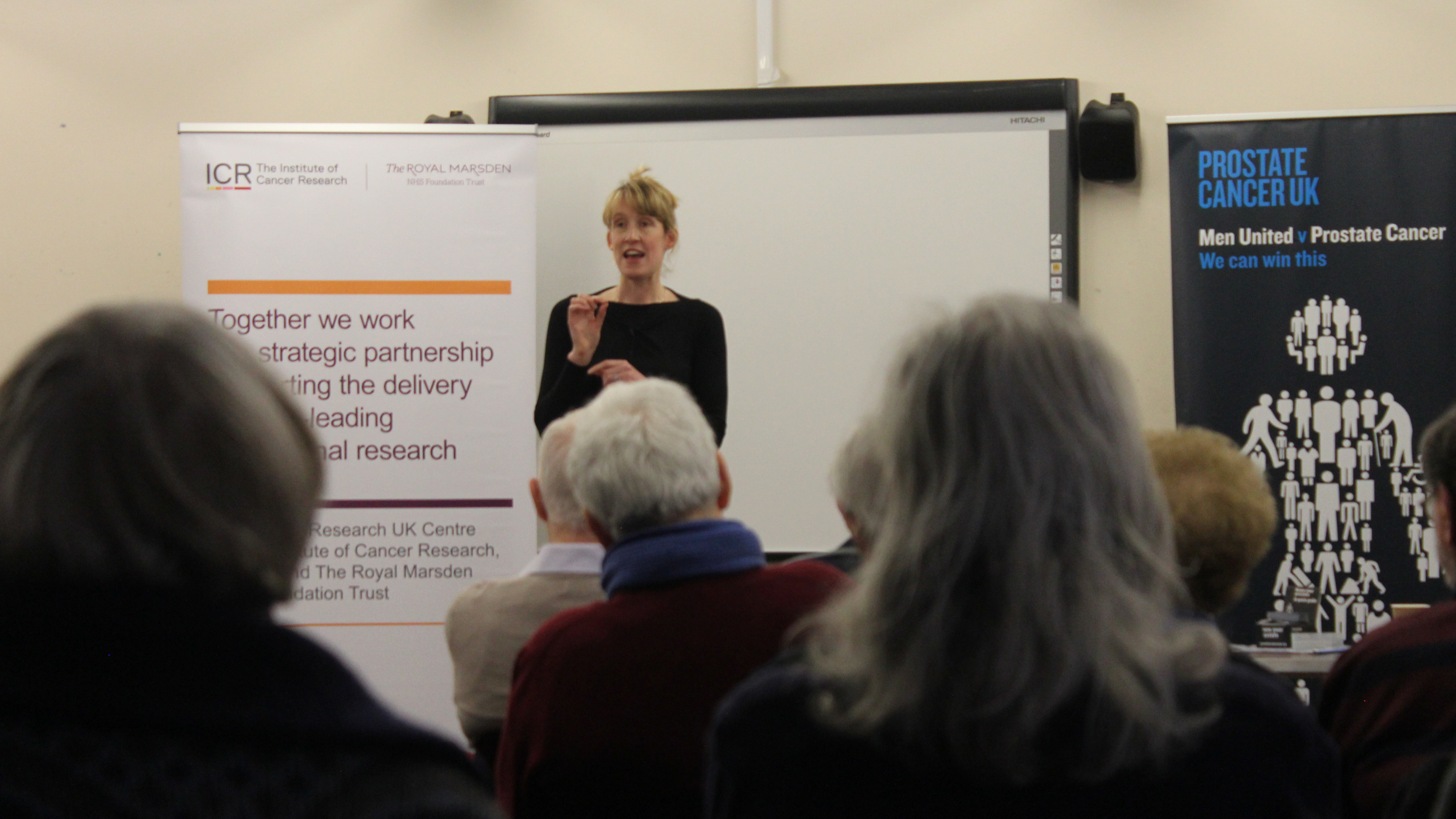
Dr Anna Wilkins speaks at the University of the Third Age public engagement event.
Public engagement – where researchers go out into the wider world to tell people about their work – is sometimes associated with school visits or trips to the pub. But scientists from The Institute of Cancer Research, London, engage with a wide range of people across society.
Dr Anna Wilkins, who works in clinical trials for new prostate cancer treatments, recently spoke at two separate meetings of the University of the Third Age (U3A). U3A is run by retired people who want to continue their learning, and it was exciting to see how engaged the audience of retired people were with our research. For some members, their interest was unexpectedly personal.
Most common male cancer
The first meeting was at the U3A Harrow branch, organised by Tamsin Ashton – a Research Engagement Manager at Cancer Research UK, who works with the ICR to engage the public with researchers supported by our Cancer Research UK Centre funding. The second meeting was in Sutton, South West London.
Dr Wilkins began by introducing prostate cancer. As it is the most common male cancer, and usually develops past retirement age, many of the attendees had personal experience of the disease.
It even turned out that one member of the audience, a former physicist, had worked directly with Professor Louis Harold Gray – whose name has gone to the standard unit of radiation, the Gray, and which is used to measure the doses of radiotherapy given to people with cancer.

The ICR's Dr Anna Wilkins (right) and Trevor Walker from Prostate Cancer UK at the University of the Third Age public engagement event
Another audience member had been a participant on a trial that Dr Wilkins worked on, called the CHHiP trial. This trial, led by researchers at the ICR and our partner hospital The Royal Marsden NHS Foundation Trust, has changed practice within the NHS. It proved that men can be treated with a radiotherapy regime that leads to fewer treatments, fewer side-effects, and fewer clinic visits. The final results were published last year and the trial could also save the NHS tens of millions of pounds per year.
Quality of life studied
Dr Wilkins is a Clinical Research Fellow at the ICR – a qualified doctor studying for a PhD in cancer research. Her PhD is looking at the effects of the new shorter treatment regime on quality of life, and whether in the future doctors might personalise treatment plans to patients’ tumours.
She is looking at how quickly tumour cells divided, and whether this affected the success of different radiotherapy schedules.
But her talks also covered a lot of ground, reflecting the levels of scientific knowledge and awareness of the audience. It was particularly exciting to see Dr Wilkins’s innovative approach to public engagement, which involved audience participation right from the beginning, bridging the gap between speaker and audience.
It was fantastic to see this audience brought together by an interest in learning more, asking questions and seeking to engage with groundbreaking science.
comments powered by